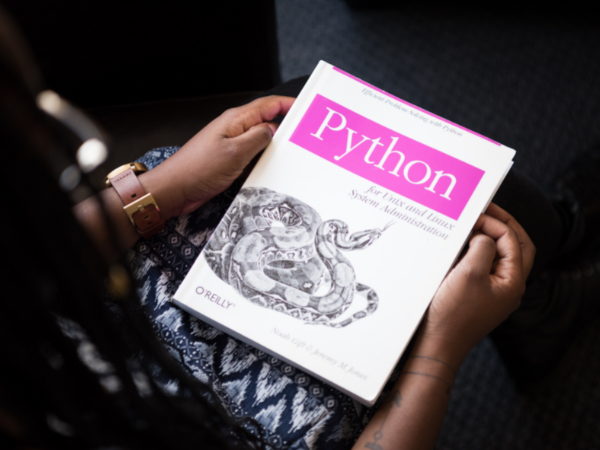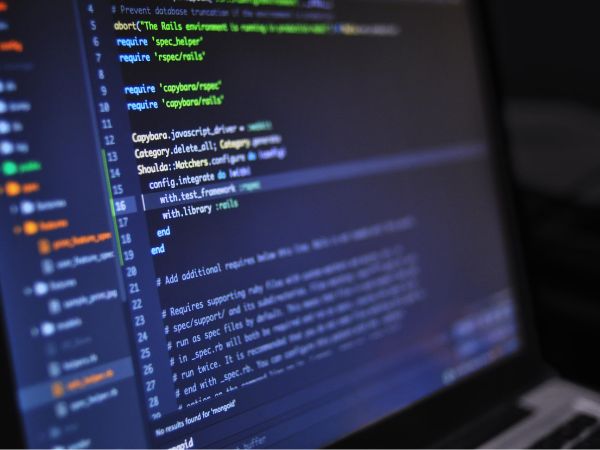What is Python used for?
If you’re planning to learn a new skill during quarantine, Python might be for you. It’s a popular programming language with a wide range of applications. What’s more, you may get into it quickly since it’s one of the easiest ones available.
We will start by talking about how Python started. Then, we’ll get into why you should learn this programming language, especially its uses in the real world. Afterward, we will show you how you can start your Python education for free.
Learning a new skill is a great way to spend time during quarantine. Among the numerous options out there, Python is one of the best. It allows you to start interesting projects and enter new career paths you never thought possible.
What is Python?

When you hear the word Python, you might think of something cool or mysterious. Well, its creator thought the same thing too. Believe it or not, he got the idea from his favorite show!
Guido Van Rossum started the application-based work for Python in December 1989. He did it at the Centrum Wiskunde & Informatica (CWI) in the Netherlands.
Your goal for learning a new skill might be similar to his objective for creating Python. He needed to pass the time. It was Christmas, and he needed a hobby project.
As we said, he named the programming language after a BBC TV show. It was called “Monty Python’s Flying Circus.” Python was the result of this seemingly simple project.
He shared Python with the world in 1991. Ironically, the simple hobby brought one of the most widely used languages right now. It’s one of the most beginner-friendly languages too.
Why should I learn Python?
You could choose so many other hobbies aside from Python. For example, you could spend the quarantine period learning how to become an investor. So why should you pick Python?
- It’s versatile – You can apply it for almost everything. That’s because it’s useful in data analysis, data science, and machine learning. Various companies apply this language to these fields, such as Facebook, Google, and Netflix. We’ll talk more about these uses later.
- Easy to learn – Since it’s open-source, Python is free for everyone. We also mentioned that beginners find it easier to pick up. That’s because it uses simple syntax. In other words, its code closely resembles English phrases.
- Fastest-growing language – The TIOBE (The Importance of Being Earnest) index measures how many lines of code did people write for each programming language. In 2020, the software company dubbed Python as the language of the year 2020.
- Get a job – LinkedIn ranked Python 2nd in the list of most in-demand languages of 2020. It’s used for online learning, web development, and other applications. What’s more, the pandemic just boosted digitalization around the world. Expect more jobs needing Python experience!
- Earn big bucks – Python software developers earn an average of $119,082 every year. Even better, you could earn this much while working from home! Also, it remained one of the highest-paying languages from 2017 to 2020.
- Supportive community – Learning Python is made easy by other folks. You can find help from online forums like Stack Overflow. They have friendly people who will gladly answer your questions about Python.
What are the real-life applications of Python?
If you’re still not convinced, let’s look closer at what Python is used for. After all, you should know whether it’s worth your time. That’s why we’ll give you more details below:
- Data science – Various industries gather a lot of info. It’s up to data scientists to organize and analyze that data. Python helps by providing data visualization and other important procedures.
- Web applications – A website is more than the page where you click things. Python is behind many websites out there. It’s in charge of many processes, such as sending data and interacting with databases. In other words, it handles the “back end” of these sites.
- Game development – Have you ever wanted to make games for the Playstation or the Nintendo Switch? Python can provide the first steps towards that dream! It will enable you to make games with simple graphics. Eventually, you can use your Python know-how to develop better games.
- Artificial intelligence – Have you ever used voice assistants like Alexa and Siri? If you have, you’ve probably wondered how it’s able to give suggestions based on your interests. Machine learning is one of the factors behind the magic of AI. Many of them were written in Python.
- Everyday tasks – “How can Python help if I’m not good at coding?” you may ask. Well, the language can help even if your current job doesn’t use a lot of data. For example, it could fill out online forms for you. If you invest in cryptocurrency, Python can keep track of the coin prices.
Why should I tap into the power of coding?
https://twitter.com/LearnPython4U/status/1274765401306644481
We’ve established that coding offers plenty of opportunities. People use it for so many things. Yet, you still might be wondering how it may apply to your life. That’s fine, though.
We’ll explore how coding skills can help you right now. For this segment, let’s say you can now write code in Python. Here’s what the power of coding will do for you:
- More ways to solve problems – Click this recent article from yours truly. If you click the items in that list, it will jump to the corresponding part. A freelance writer like me was able to improve his article with a few simple lines of code. Imagine what the power of coding can do for your career!
- Expand your job opportunities – It’s no surprise that coding skills can help you land a coding job. If it needs coding experience, that could be your ticket! Aside from this, the power of coding can help you land a role in your dream company.
- Learn other programming languages – Maybe you want to learn other languages besides Python. However, those are likely to be more difficult. Python could help you get the hang of coding. Eventually, you can build up the confidence to handle more difficult languages.
Read More: The Best Remote Work Opportunities Right Now!
How do I learn Python?
We now know that this language is easy to learn. You have lots of free and paid options on the internet, but how do you start? You may follow these steps:
- Set a goal – We could go on about what Python is for, but you have to figure out if it’s for you and why. Look at the applications we talked about earlier. Then, pick the one that you’re willing to stick with for several months. This will determine how you’ll follow the next steps.
- Learn basic syntax – No matter your Python goals, you need to learn the basics. This means knowing how the parts of the code work. It’s best to start with Python 3, though. Many of the online tutorials still teach Python 2, but that’s not supported anymore.
- Install Python – Get the latest version of Python for your computer. It works on both Windows and Mac operating systems. You won’t need to download it if you have the latter. Mac devices have Python pre-installed.
- Follow structured projects – After knowing your goal and the basics, it’s time to test them out on a structured project. Choose the one that fits your chosen objective. For example, scikit-learn is one of the Python libraries that can help you with machine learning.
- Make projects yourself – Once you’re done with the structured projects, it’s time to make your own. You could perform high-level structured projects to find inspiration for yours. This will help you explore how much you’ve learned and what you can do.
- Aim for greater projects – The key to every skill is practice. Python is no exception. Get new ideas and apply them to new projects! Find or make new ways to hone your Python prowess.
Final thoughts
You probably searched what Python is used for while finding a new job. It can be difficult to get one right now. Also, it might be one of those skills you browsed.
It might be a good idea to look for remote work right now. Working from home lets, you earn while avoiding the virus. You may check our other article about great work-from-home options.
The pandemic is bringing a new normal, though. In response, you might want to know how it might work. Click on this link to get some ideas about the so-called “new normal.”
Related Articles
Learn more about what is Python used for
Why is Python so popular?
Python is a well-known programming language for plenty of reasons. First, it’s one of the easiest languages to learn for beginners. Second, it has so many applications, even for jobs that don’t involve much data. Third, it opens numerous job opportunities where you could earn up to $100,000 or more every year!
Is Python easy to learn?
Many first-timers find it easy to pick up this programming language for a variety of reasons. First, you have so many free online resources with all you need to know. There are also paid ones that may help you take your Python skills to greater heights. Second, there are so many online forums with friendly experts ready to assist you.
Is Python enough to get a job?
It could be a huge plus in getting a job, but don’t rely on this skill alone. After all, employers expect more qualities from their employees. These may include teamwork, social skills, and others that don’t involve Python or computers. Take your job interviews and exams seriously so you can land your dream job!




